
Journal of Operational Risk
Scope & Guideline
Bridging Theory and Practice in Operational Risk
Introduction
Aims and Scopes
- Operational Risk Measurement and Management:
The journal delves into methodologies for quantifying operational risk, including the application of statistical models, machine learning, and extreme value theory to better understand potential loss scenarios. - Impact of Technology on Risk Management:
A significant focus on how technological advancements, such as fintech and information technology, influence operational risk management practices, including risk mitigation and auditing processes. - Regulatory Frameworks and Compliance:
Explores the implications of regulations on operational risk, including compliance strategies and the effects of regulatory changes in different banking environments. - Behavioral and Organizational Aspects of Risk:
Investigates how organizational culture, governance structures, and internal audit practices affect operational risk management and the overall risk landscape. - Sector-Specific Studies:
The journal features research on operational risk pertinent to specific sectors, particularly banking, with examinations of regional differences and unique challenges faced by institutions.
Trending and Emerging
- Integration of Machine Learning and AI in Risk Management:
There is a growing emphasis on the use of advanced analytics, including machine learning and AI, to enhance the categorization and prediction of operational risk events, marking a significant trend towards data-driven decision-making. - Impact of Cyber Risk on Operational Frameworks:
Research focusing on cyber risk, including definitions, classifications, and its integration into broader operational risk frameworks, has gained traction, underscoring the increasing importance of cybersecurity in risk management. - Post-Pandemic Risk Management Strategies:
The journal has seen an uptick in studies analyzing the shifts in operational risk management practices resulting from the Covid-19 pandemic, highlighting the need for resilience and adaptability in risk frameworks. - Cross-Sectoral Risk Analysis:
Emerging studies that examine operational risk across different sectors, including non-financial industries, are on the rise, indicating a broader application of operational risk principles beyond traditional banking. - Behavioral Insights in Risk Management:
There is an emerging focus on the behavioral aspects of risk management, including how organizational culture and board diversity influence risk-taking and governance structures.
Declining or Waning
- Traditional Risk Assessment Models:
There is a noticeable decrease in papers focusing on conventional risk assessment models, suggesting a shift towards more innovative and complex methodologies that incorporate modern data analytics and machine learning. - Generalized Economic Impact Studies:
Research that broadly examines economic impacts of operational risk without specific contextual focus is less prevalent, indicating a trend towards more targeted studies with actionable insights in specific sectors. - Descriptive Risk Analysis:
Studies that merely describe operational risk without offering prescriptive methodologies or solutions have become less common, reflecting a preference for research that provides concrete frameworks or tools for practitioners.
Similar Journals
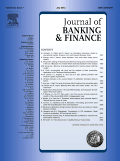
JOURNAL OF BANKING & FINANCE
Navigating the Complexities of Finance with ExpertiseWelcome to the Journal of Banking & Finance, a premier publication in the fields of finance and economics, expertly published by Elsevier. With its esteemed Q1 ranking in both the Economics and Econometrics and Finance categories for 2023, this journal frequently garners significant attention from researchers, professionals, and academics alike. Established in 1977, it has become a crucial resource for the latest research and advancements in banking and financial services, influencing policies and practices on a global scale. The journal's commitment to high-quality, peer-reviewed content ensures that it not only contributes to academic discourse but also drives real-world financial innovation. As part of the respected Elsevier publishing collection, the journal's rigorous standards and comprehensive analysis serve as indispensable tools for those seeking to understand and navigate the complexities of the financial landscape. Located in the Netherlands, the Journal of Banking & Finance continues to play a vital role in shaping the future of financial research through its impactful insights and research contributions.
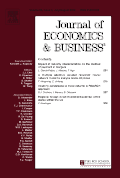
JOURNAL OF ECONOMICS AND BUSINESS
Fostering Rigorous Research in Economics and BusinessJOURNAL OF ECONOMICS AND BUSINESS, published by Elsevier Science Inc, stands as a leading platform for the dissemination of research in the fields of economics and business management. With an ISSN of 0148-6195, this journal is indexed in Scopus and boasts impressive rankings, including a position in the top 20% for both Finance and Economics and Econometrics. With a consistent publication history since 1978, it has become a vital resource for scholars and practitioners alike, providing insights into contemporary issues and emerging trends in the economic landscape. The journal, categorized in the Q2 quartile for both Business and Economics, invites rigorous research that advances theoretical and practical knowledge. While it operates under a subscription model, its notable impact factor reflects its significance and relevance in addressing critical questions within the business and economics domains. Whether you are a researcher, a business professional, or a student eager to deepen your understanding, the JOURNAL OF ECONOMICS AND BUSINESS is an essential resource for your academic and professional journey.
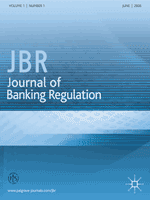
Journal of Banking Regulation
Exploring Innovations in Financial Governance.Journal of Banking Regulation is a premier academic journal published by Palgrave Macmillan Ltd. based in the United Kingdom, contributing significantly to the fields of Economics and Finance. With an ISSN of 1745-6452 and an E-ISSN of 1750-2071, this journal serves as a vital platform for the dissemination of cutting-edge research that addresses the complexities of banking regulations in a rapidly evolving financial landscape. As a Q3 ranked journal in both Economics and Econometrics and Finance categories, it holds a respectable position among its peers, with Scopus ranks highlighting its impact within the research community (Rank #246/716 and #115/317, respectively). The journal has been converging contemporary studies and analyses since its inception in 2008, and actively invites scholars, professionals, and students to explore its insightful articles. Though primarily subscription-based, readers can benefit from its rigorous content, which aims to inform regulatory practices and foster a deeper understanding of the banking sector's intersection with global economic trends.
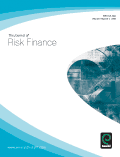
Journal of Risk Finance
Empowering research for informed financial decisions.The Journal of Risk Finance, published by Emerald Group Publishing Ltd, is a premier academic journal dedicated to advancing the understanding of risk management and finance practices since its inception in 1999. With a strong foothold within the Q2 rankings in both Accounting and Finance categories, it proudly holds a significant place in the scholarly landscape, ranking #54 out of 317 in the Scopus Economics and Finance category, placing it in the 83rd percentile. The journal aims to facilitate the exchange of innovative research and practical insights, catering to an audience of researchers, professionals, and students eager to explore contemporary issues in risk finance. While not an open access journal, it provides numerous access options, ensuring that essential findings reach a broad readership. Set in the United Kingdom and covering publications up to 2024, the Journal of Risk Finance continues to be an indispensable resource for those committed to this critical field.
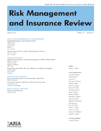
RISK MANAGEMENT AND INSURANCE REVIEW
Pioneering Research in Risk Assessment and Insurance PracticesRISK MANAGEMENT AND INSURANCE REVIEW, published by Wiley, is a vital journal for researchers and practitioners in the fields of accounting, economics, and finance. With an ISSN of 1098-1616 and an E-ISSN of 1540-6296, this journal serves as a comprehensive platform for the dissemination of cutting-edge research and insights into risk management and insurance practices. Although it does not offer an open-access model, it is recognized for its rigorous peer-review process and maintains an impactful presence within the academic community, reflected in its 2023 Scopus rankings in various disciplines, including its Q3 quartile status across multiple categories. The journal's scope addresses key contemporary issues in risk assessment, financial stability, and insurance innovation, contributing significantly to the evolving discourse in these areas. As it converges from 2006 to 2024, RISK MANAGEMENT AND INSURANCE REVIEW continues to attract a diverse readership, providing valuable resources and fostering dialogue among students, professionals, and established researchers alike.
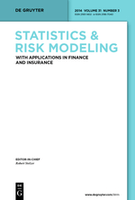
Statistics & Risk Modeling
Exploring innovative methodologies for risk modeling.Statistics & Risk Modeling is a distinguished journal published by WALTER DE GRUYTER GMBH, focusing on the intricate relationships between statistical methodologies and risk assessment techniques. With a strong academic foundation, the journal has been an influential platform in its field since its inception, converging contributions from 1982 to 2002 and again from 2011 to 2024. This journal is currently ranked in the Q3 category in both Modeling and Simulation and Statistics and Probability, reflecting its commitment to advancing knowledge and promoting robust research in statistics, probability, and uncertainty analysis. Although it offers a traditional subscription model, its significant contribution to the community is underscored by its increasing visibility in Scopus rankings, where it stands in the 44th percentile for Decision Sciences and Statistics. By comprehensively addressing contemporary issues in statistical theory and its practical applications, Statistics & Risk Modeling serves as an essential resource for researchers, professionals, and students aiming to deepen their understanding of statistical science and its implications in risk management.
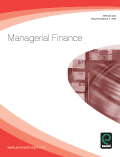
MANAGERIAL FINANCE
Unlocking Strategies for Contemporary Financial Challenges.MANAGERIAL FINANCE is a prestigious academic journal published by Emerald Group Publishing Ltd, focused on the areas of finance, management, and strategy. With an ISSN of 0307-4358 and an E-ISSN of 1758-7743, this journal has carved a niche for itself within the business and financial sectors, achieving a commendable Q2 category ranking across multiple domains, including Business, Management and Accounting, Finance, and Strategy and Management, as of 2023. The journal aims to provide a platform for insightful research and critical analysis while fostering an understanding of contemporary financial practices and theories. With its wide-ranging scope, it serves as a vital resource for researchers, professionals, and students alike, looking to stay abreast of the latest trends and challenges in managerial finance. The editorial board is committed to maintaining academic rigor, ensuring that articles published are of the highest quality and relevance to the field. By bridging the gap between theory and practice, MANAGERIAL FINANCE is an essential reference for anyone involved in financial decision-making and strategic management.

PROCESS SAFETY PROGRESS
Pioneering progress in chemical safety and reliability.PROCESS SAFETY PROGRESS is a distinguished journal published by WILEY, focusing on the critical intersections of chemical engineering and safety, risk, reliability, and quality. Established in 1993, this peer-reviewed journal serves as a significant platform for disseminating high-quality research findings and innovative solutions in process safety. With an established impact within its fields, it holds a Q3 categorization in both Chemical Engineering and Safety, Risk, Reliability and Quality as of 2023. The journal's rigorous manuscript evaluation process, combined with its emphasis on emerging challenges and solutions in industry practices, makes it a crucial resource for researchers, industry professionals, and students alike. Although not Open Access, PROCESS SAFETY PROGRESS continues to enhance its visibility through its indexed presence in Scopus, where it ranks in the 50th percentile in its categories. As it converges to its 2024 volume, the journal remains committed to promoting advancements in the field and fostering a safer environment in chemical process engineering.
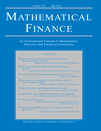
MATHEMATICAL FINANCE
Unraveling Complexities of Finance through MathematicsMATHEMATICAL FINANCE is a prestigious journal published by Wiley, focusing on the interdisciplinary fields of finance, applied mathematics, accounting, and economics. With its ISSN 0960-1627 and E-ISSN 1467-9965, this journal has earned its place in the top tier of academic publications, reflected by its Q1 rankings across multiple categories in 2023, including Accounting, Applied Mathematics, Economics and Econometrics, Finance, and Social Sciences. MATHEMATICAL FINANCE, which commenced publishing in 1991, is recognized for its rigorous peer-review process and its significant contribution to the advancement of knowledge in quantitative finance methodologies and risk management practices. Although it does not currently offer open access, the journal remains an invaluable resource for researchers, professionals, and students seeking to stay abreast of the latest theoretical advancements and empirical studies in mathematical finance. Its impact factor and Scopus rankings further illustrate its high standing within the academic community, making it an essential platform for impactful research and scholarly discourse.
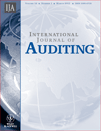
INTERNATIONAL JOURNAL OF AUDITING
Advancing auditing knowledge for a global impact.INTERNATIONAL JOURNAL OF AUDITING is a premier academic journal dedicated to advancing the field of auditing and its intersections with accounting, finance, and economics. Published by Wiley, the journal boasts a robust impact factor and is recognized for its rigorous peer-reviewed content, positioning itself within the Q2 category as noted in the 2023 quartiles for both Accounting and Economics, Econometrics, and Finance. With its significant Scopus rankings, including a #61 placement in General Economics, and a #77 rank in Accounting, the journal serves as a vital resource for researchers, professionals, and students seeking to navigate and contribute to the evolving landscape of auditing practices. Covering a wide range of topics from financial audits to regulatory issues, the journal aims to foster a deeper understanding of both theoretical and practical aspects of auditing. The INTERNATIONAL JOURNAL OF AUDITING is a key platform for disseminating pioneering research that influences policy and practice globally, ensuring its relevance to academics and industry leaders alike.